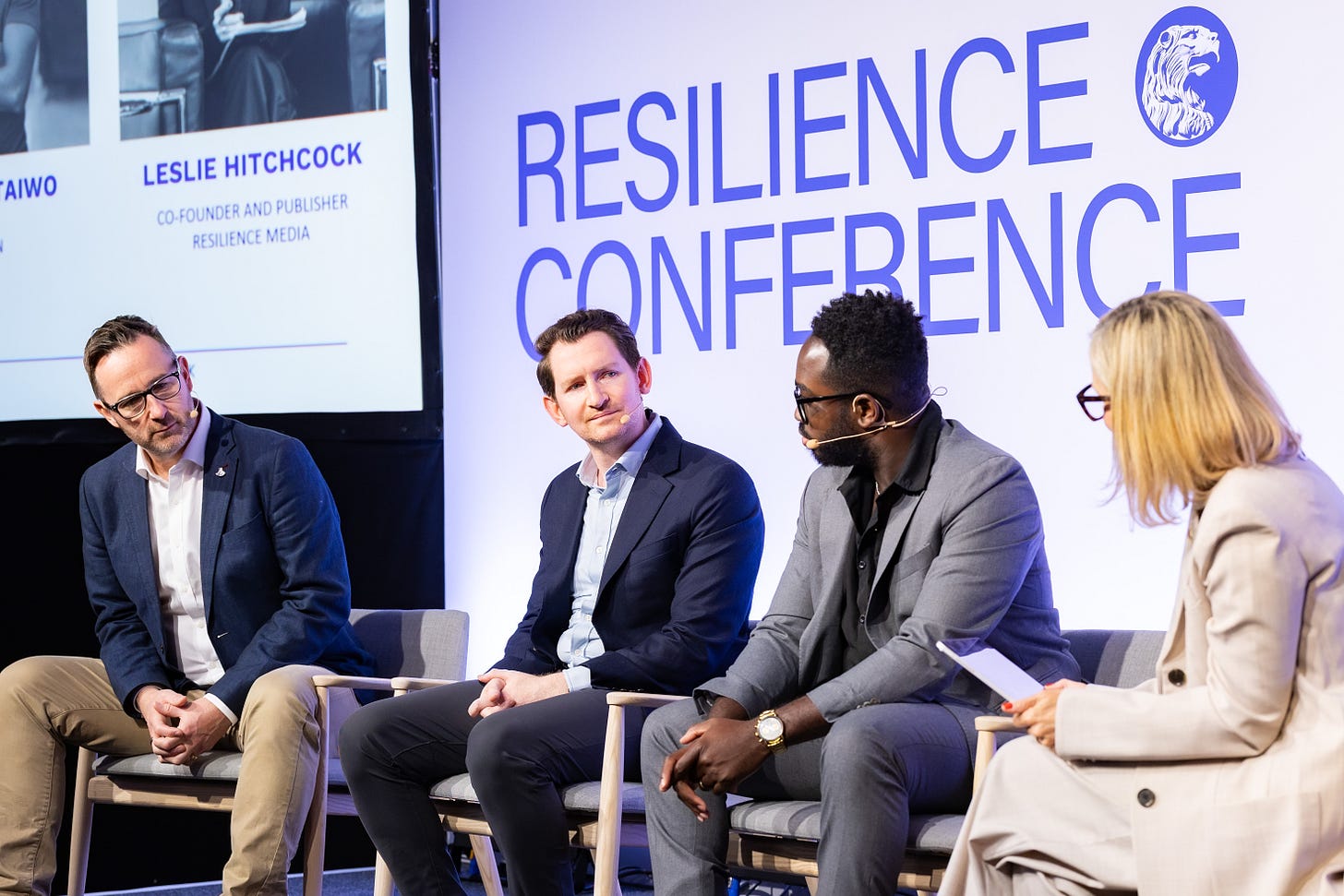NATO Warned: Defence Industry Bottleneck is Policy, Not Hardware
Founders say procurement delays and weak long-term commitments are threatening to blunt Europe’s response to Russian aggression
NATO allies risk losing critical time in strengthening their defence industrial base, with founders warning that outdated procurement processes and testing systems, rather than hardware capacity, are the biggest obstacles to building resilience.
During a panel discussion at Resilience Conference this week, defence tech founders and manufacturers stated that while governments are increasingly acknowledging the urgency of scaling production, progress on the ground remains slow.

Rich Drake, who leads Anduril’s UK arm, said Britain is still waiting for clarity on its defence industrial strategy months after the long-trailed Strategic Defence Review.
“Everybody’s talking the right game, but we are yet to move at the pace we need to be ready,” he said. “We need to wait perhaps another 10 months before we get our defence industrial plan, from which we then start to buy and deliver things. We’re losing time.”
For early-stage companies, the challenge is not a lack of innovation but a lack of access. Oluseun Taiwo, founder and CEO of Solideon, said small firms are rarely included in acquisition discussions, leaving them dependent on larger contractors to open doors.
“It’s not just about cool robotics anymore,” he said. “You have to have a sustaining business model so your company survives long enough to deliver. If I want to help the warfighter, my business has to survive.” Solideon, which develops large-scale metal 3D printing and welding systems for the maritime sector, has leaned on partnerships with established shipbuilders to secure direct contracting routes.
Software, rather than hardware, is emerging as another critical bottleneck. Cameron McCord, founder and chief executive of Nominal, argued that the systems used to test and certify hardware have not kept pace with the demands of shorter programme timelines and modern autonomous technologies.
“It’s a solved problem to test, deploy and monitor software,” he said. “It’s not solved for software-defined hardware, robotic systems, autonomous systems – and that’s where production now gets stuck.” Nominal, which has recently opened a London office, is seeking to replicate the software testing infrastructure built in Silicon Valley for defence manufacturers in Europe.
The question of sovereignty – whether NATO nations can rely on foreign-owned companies for critical defence capabilities – was also a recurring theme.
Drake argued that sovereignty is about supply chains and local investment, rather than ownership. “We can be a sovereign UK business by using the UK supply chain, investing in factories, apprenticeships and SMEs, and giving freedom of action to government,” he said. McCord suggested that Nominal’s software can also fit into sovereignty requirements by ensuring nations can test and validate “their systems” while benefiting from international expertise.
Despite signs of progress, the panellists said governments still hesitate to make the long-term financial commitments that manufacturers and investors need. Drake warned that without multi-year contracts, firms cannot justify investment in new sites or capacity. “We are stuck between two places,” he said. “We are not yet at a war economy, and I hope we never have to be. But without longer-term commitments, investor capital does not follow.”
The panellists pointed to some improvements, particularly in the United States, where new acquisition pathways have made it easier for software companies to sell to the government. However, they cautioned that Europe lags behind, with too much reliance on rhetoric rather than action.
Asked what capabilities NATO would most regret failing to fund if Russia escalates by 2027, the answers were sobering. Taiwo pointed to Europe’s 370,000 industrial robotic arms that could be repurposed to manufacture heavy components but remain underutilised; McCord called for greater investment in electronic warfare, including GPS denial and jamming; and Drake urged governments to prepare “shadow factories” in civilian industries, ready to be converted at speed.
The panel’s conclusion was clear: NATO has the technology, talent and entrepreneurial drive to build resilience, but unless governments accelerate procurement, modernise testing, and commit to longer-term investment, they risk being overtaken by events.

